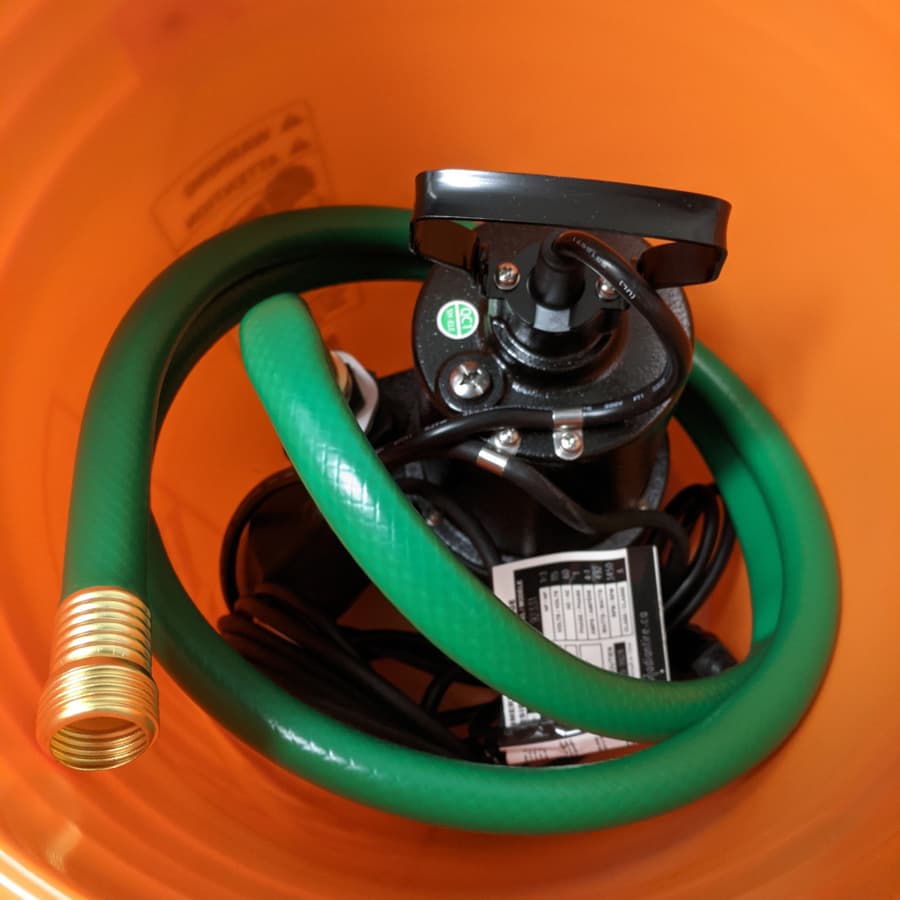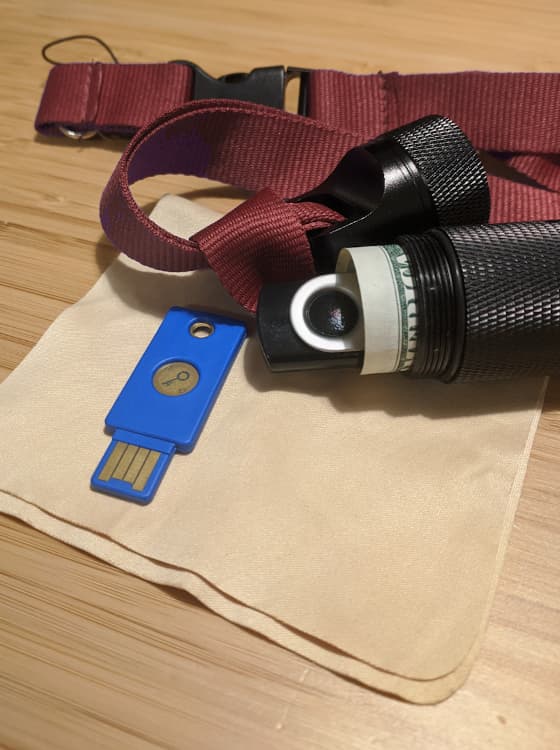
Sump Pump Kit
It's 2 am. Your neighbour bangs on the door. Their house is flooding, and their sump pump just broke. The hardware store is closed. Can you help? .. If you live somewhere with a basement and water, you may use a pump to keep your basement dry. This kit contains everything needed to get water out of your house. This kit may seem expensive, because you are buying a pump. But it's cheaper than an emergency call to a plumber. And it's cheaper than an insurance claim and a flooded basement. A sump pump is a perfect example of something worth preparing in advance. When you need it, you *really* need it. And chances are - everyone else may too. Better to have a kit ready than to be part of the crowd, rushing to the out-of-stock hardware store during a flood. -- Container Options ============== You have several ways to store this: 1) One Bucket, stuff sticking out. If you use a hose kit, it is unlikely everything will fit into one bucket. If you're not concerned about being neat and tidy, this is the cheapest, easiest way to do it. You could also measure the hose length to your floor drain and cut the hose to save space. 2) Two Buckets, one for hose, one for pump. If you coil it nicely, 20 feet of 1-1/2" hose will juuust fit inside a 5 gallon bucket. Put the pump and other items into a second bucket. This lets you put lids on top, to keep it all together. You must carry two buckets around. 3) One Bucket, upgrade hose. If you buy an adapter, you can use a marine hose (strong garden hose) instead of a regular hose. This lets you fit everything in one bucket. The marine hose may be longer, but have a smaller diameter, so it will move water more slowly. How To Use It =========== Usually you want to send the water one of two places: into the storm drain system (in a city) or out onto the lawn or road. The farther away from the house, the better - at least 20 feet. Note it is illegal in many areas to permanently connect your sump pump to the _sewer_ system (it should connect to the _storm drain_ system), including a floor drain. But in an emergency, if choosing between a floor drain and a flooded house - put the water wherever it needs to go. You can point the hose at the floor drain and remove water, if the hose is not long enough to reach outside of the house. -- References ========= * https://www.bobvila.com/articles/best-sump-pump/ * https://www.ag.ndsu.edu/waterquality/documents/check-you-sump-pumps-now * https://diy.stackexchange.com/questions/164984/sump-pump-ok-to-reduce-1-5-to-3-4 Forum Thread =========== * https://theprepared.com/forum/thread/sump-pump-kit-keeping-your-basement-dry-and-your-neighbours-too/

Digital Recovery Kit
After a house fire, bad accident, or other big event - can you get your digital life back? This is a small kit that can be stored at a trusted, off-site location. Use it to regain access to your digital accounts and assets, especially if you have to start from scratch. Make one and store at a relative's or friend's house. Perhaps swap with them and store theirs. Related pages: * Digital Security 101 - https://theprepared.com/prepping-basics/guides/digital-security-101/ * Digital Preparedness - https://theprepared.com/forum/thread/digital-preparedness/